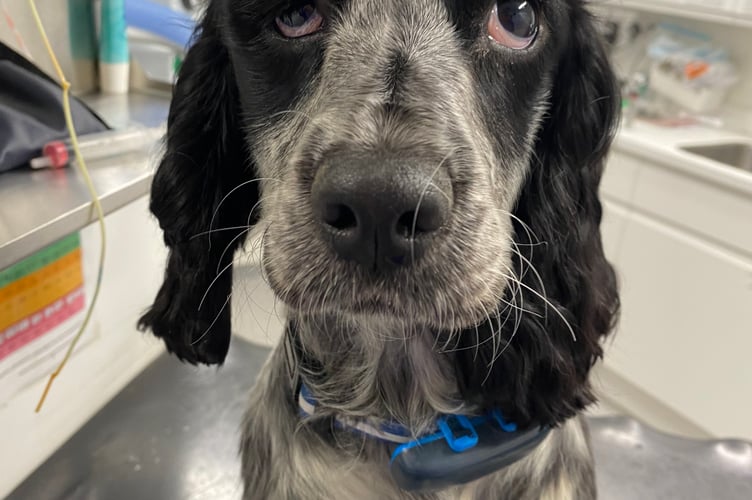A Petersfield vet is urging dog owners to check their pets after going for walks, following a rise in problems caused by grass seeds.
St Peter’s Vets has issued a warning about the potential dangers of grass seeds after seeing a higher than usual number of affected dogs admitted to its surgeries in Petersfield, Liss, Horndean and Farlington. The practice has also treated cats that have been affected by grass seeds.
Grass seeds can become embedded in paws, ears, eyes, armpits, the tail, the groin or other areas of skin, and may cause painful wounds and infections. The sharp point of the seeds can pierce the skin and migrate through the body or, if inhaled into the mouth or nose, can lodge in the lungs.

Signs a pet is affected by grass seeds include:
- Hair matting,
- Irritation and swelling
- Blood or discharge from a small wound
- Excessive or unusual licking, scratching and rubbing the head and eyes
- Sneezing or rubbing the nose
- Headshaking
- Limping or nibbling at paws
- Discharge from the eyes
The latest case saw Spaniel Dot, who belongs to St Peter’s Vets reception manager Zoey Lee.
Zoey said: “Dot was fine straight after the walk but the next day her head was swollen on the right-hand side and she couldn’t open her eye on that side.
“There was a seed inside Dot’s head that had most likely gone into her eye, travelled behind the eye socket and then migrated further back into her head.
“One of our vets, Jen Monnington, lanced the top of Dot’s head, which released lots of pus that had built up and she was able to remove the offending grass seed with a pair of forceps. Dot needed to stay in the practice overnight so she could be monitored, but she’s made a full recovery.”




